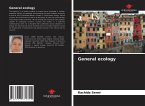Mangroves are coastal forests equivalent to tropical rainforests. They are irreplaceable and unique ecosystems, home to an incredible biodiversity, and are considered to be among the most productive on the planet. The aerial roots of their trees emerge from the salt waters of coasts, estuaries, river deltas and keys, forming a network that provides shelter to a multitude of animal species (fish, mollusks, crustaceans, birds), many of them important for human food.The mangroves are parking and breeding areas for a large number of these species, they are a refuge for Germans and small growing fish, and other forms of marine life in their spawning stage. They also protect these coasts from erosion, and have for centuries provided a multitude of resources to local populations.The mangrove is characterized by not presenting a mixed structure: the labyrinthine web of trees and roots is usually in reality an ordered forest mass that grows in bands according to their different degree of resistance to periodic tidal flooding, and therefore to salt.There are many types of mangroves, but they all have one thing in common, they are very fragile and endangered "salt forests".
Hinweis: Dieser Artikel kann nur an eine deutsche Lieferadresse ausgeliefert werden.
Hinweis: Dieser Artikel kann nur an eine deutsche Lieferadresse ausgeliefert werden.








